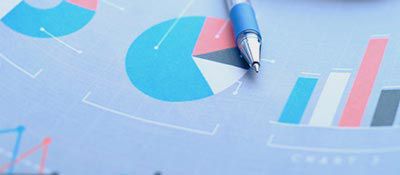Developing a realistic budget for beginners
If you're just starting your career or living on your own for the first time, you know the learning curve is steep. Here's how to budget for beginners.
If you're just starting your career or living on your own for the first time, you know the learning curve for adulthood is steep. How is it that you got through so many years of school and still don't understand how borrowing money works? Taxes? Forget it. Where was the intro to budgeting class?
Some people just seem to get it. They pay their bills without a sweat, they rarely accidentally spend too much on a night out, and when they think of their finances, they don't feel panic or confusion.
Whether these people infuriate or inspire you, chances are you want to be where they are. So let's start where they probably did: a rock-solid budget. Here's how to build one of your own.
Include one-off items in your budget
When you're thinking about how to make a budget that covers what you spend every month, it makes sense to start with the costs that come, well, every month. Expenses like rent, student loan payments, and your cell phone bill probably don't change much from month to month.
Significant one-off expenses are a little harder to plan for, but your budget won't be complete without them. Here are a few of the costs that beginners tend to forget to factor into their budgets:
- Veterinary bills
- Holiday spending
- Car repairs
- Vacations
- Health and personal care
When setting up your budget, consider your big purchases over the past year. Are there things that caught you by surprise and left you scrambling? Write them down and estimate how much they cost. Then divide by 12 and add that number to your monthly budget.
Want a head-start in creating your budget? Use our budget planner to organize your money.
Don't forget YOLO expenses
Factoring in one-off costs is half the battle, but not every blown budget is the victim of big-ticket items. Frequent unplanned fun expenses like impromptu dinners with friends or a $50 birthday gift can be just as destructive.
These items may seem inconsequential one by one, but ignore them and you'll constantly be playing catch-up with your money. Instead, add an extra $50 or so per month to your budget to cover YOLO expenses.
Start a slush fund
Now that you've factored unplanned costs into your budget, where should you put that money? Answer: your slush fund.
Your slush fund should be a savings account, preferably a no-fee, high-interest account that's easily accessible. Your slush fund is a rolling account, which means that if there's a month when you don't have a one-off or YOLO expense, that money carries over to the next month. Your slush fund is there for you when you need to take a friend out for drinks to celebrate a promotion or frantically pay your car registration after you forgot it was due.
“Now that you've factored unplanned costs into your budget, where should you put that money? Answer: your slush fund.”
Remember why you're budgeting
Once you've got a budget that factors in your regular bills and unexpected one-off expenses, it's time to focus on the ultimate purpose of your budget — to improve your finances by setting aside money to pay off debt and save. If you've got your monthly spending under control, everything left over should go toward savings or debt repayment.
To start, ask yourself what your financial goals are, and then make space in your budget to reach them. If your savings are nothing more than a pipe dream right now, your first step should be to establish a mini emergency fund. Aim to start with a fund of $1,500 to $2,500. After your mini emergency fund is in place, you can start pouring more of your money into tackling your debt, saving for a house, or reaching any other financial goals you have.
Track your spending
It's not enough to set a budget at the beginning of the month and hope you don't blow it. You need to track yourself to ensure you aren't overspending in various categories. One of the best ways to do this is to track all of your expenses in a spreadsheet. You’ll be able to find your debit and credit transactions on your monthly statements. But anything you buy using cash, you’ll need to track manually so you can add it to your spreadsheet. Once you understand where your money is going, you can make informed decisions about where you might need to cut back.
Budgeting is an essential aspect of good financial management, but many Canadians struggle with it because they don't design a budget that's realistic. A good budget for beginners goes beyond recurring bills, to include both unexpected expenses and long-term goals. Keep those variables in mind and before long you'll be the one doing the infuriating or inspiring.
Ready to start budgeting? Set up your budget with our online budget planner.

